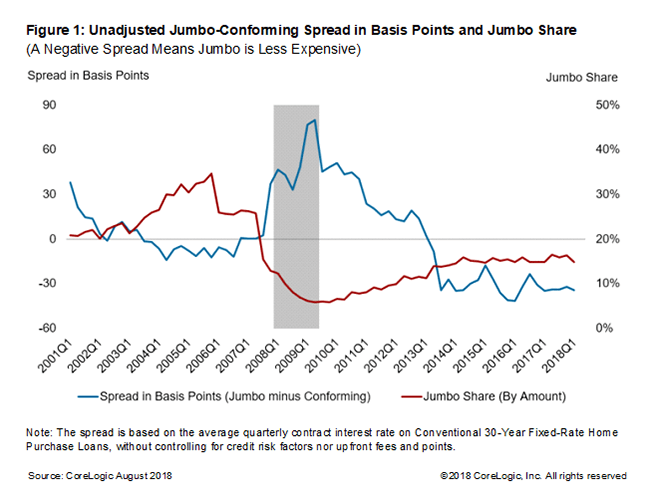Recognizing Jumbo Loan: What You Need to Know for Luxury Home Purchases
Recognizing Jumbo Loan: What You Need to Know for Luxury Home Purchases
Blog Article
Checking Out the Conveniences and Features of Jumbo Loans for Your Next Home Purchase Decision
As the realty market advances, comprehending the intricacies of big lendings ends up being significantly important for potential homebuyers taking into consideration high-value residential properties. These finances not only facilitate considerable funding yet likewise supply numerous benefits, such as affordable rates of interest and the prospective elimination of private mortgage insurance policy. However, the course to safeguarding a big finance is loaded with details eligibility standards that might test some customers. To totally appreciate exactly how big car loans can influence your home acquisition technique, it is crucial to explore their essential features and benefits in greater information.
What Is a Jumbo Loan?

Jumbo loans are commonly used by purchasers looking for to acquire high-value residential properties or homes in costly markets. jumbo loan. Given the larger quantities borrowed, lending institutions commonly impose more stringent debt requirements, consisting of higher credit rating, lower debt-to-income proportions, and bigger down settlements. The interest rates on big finances might be slightly higher than those on adjusting financings, reflecting the boosted threat for lending institutions
Additionally, the authorization procedure for a big financing can be extra complex and taxing, as lenders call for comprehensive documents to assess the consumer's financial security. Recognizing these nuances is essential for potential property owners thinking about a jumbo financing for their residential property financing demands.
Key Advantages of Jumbo Lendings
One substantial benefit of jumbo fundings is their capability to fund higher-priced residential or commercial properties that go beyond adapting lending restrictions. This function makes them an attractive choice for purchasers aiming to buy deluxe homes or properties in high-cost areas where costs normally go beyond conventional financing limits.
Additionally, jumbo loans often feature flexible terms and affordable interest prices, allowing consumers to tailor their funding to fit their distinct monetary scenarios. jumbo loan. This flexibility can include alternatives for adjustable-rate mortgages (ARMs) or fixed-rate lendings, providing buyers with the capacity to handle their month-to-month settlements according to their choices
Another benefit is that jumbo lendings do not require private mortgage insurance (PMI), which can substantially minimize the overall price of the financing. With PMI commonly being a substantial cost for conventional finances with low down payments, preventing it can bring about considerable financial savings gradually.
In addition, borrowers of big loans normally have access to greater financing amounts, enabling them to buy homes that satisfy their lifestyle requires. This gain access to empowers buyers to act emphatically in affordable property markets, safeguarding their desired homes better. On the whole, jumbo finances offer crucial advantages for those seeking to fund costs properties.
Eligibility Demands for Jumbo Fundings
Jumbo lendings feature certain eligibility requirements that potential borrowers must fulfill to safeguard financing for high-value residential or commercial properties. Unlike standard lendings, which have set limitations based on the adjusting financing limits established by government-sponsored entities, big lendings exceed these thresholds, necessitating stricter criteria.

Additionally, jumbo loans frequently demand a significant down settlement, typically view varying from 10% to 20% of the purchase rate, depending on the lending institution's policies and the borrower's economic scenario. Meeting these eligibility demands can place debtors favorably in securing a big funding for their preferred home.
Contrasting Jumbo Car Loans to Traditional Loans
Comprehending the differences in between big car loans and conventional car loans is vital for homebuyers navigating the high-end actual estate market. Jumbo lendings exceed the conforming financing limits set by the Federal Housing Financing Company (FHFA), which means they are not eligible for purchase by Fannie Mae or Freddie Mac. This leads to various underwriting standards and needs for debtors.
In comparison, traditional fundings usually follow these limits, enabling for an extra structured authorization procedure. Big finances commonly require more stringent credit rating, bigger down settlements, and greater economic books. While a traditional funding may require a down payment of as little as 3% to 5%, big finances typically require a minimum of 10% to 20%.
Rates of interest on jumbo fundings might vary from those of traditional finances, typically being slightly greater due to the raised threat lending institutions think - jumbo loan. The possibility for significant funding can be helpful for customers seeking deluxe homes. Eventually, comprehending these differences makes it possible for buyers to make enlightened decisions, aligning their financing alternatives with their distinct investing in demands and monetary conditions
Tips for Protecting a Jumbo Lending
Safeguarding a jumbo car loan requires mindful planning and preparation, as lenders typically enforce more stringent demands contrasted to conventional financings. To enhance your possibilities of authorization, start by inspecting your credit history and attending to any type of concerns. A rating of 700 or higher is usually favored, as it shows creditworthiness.
Next, gather your financial documents, including tax returns, W-2s, and bank declarations. Lenders usually call for extensive evidence of income and possessions to examine your capacity to pay off the loan. Maintaining a reduced debt-to-income Learn More (DTI) ratio is additionally crucial; objective for a DTI below 43% to improve your application's competition.
Furthermore, consider making a bigger down payment. Numerous lending institutions look for a minimum of 20% down for jumbo financings, which not only lowers your financing quantity but also signals financial security. Involving with an experienced home mortgage broker can offer important understandings right into the process and assist you browse numerous lender options.

Final Thought
In summary, big financings existing considerable benefits for homebuyers looking for buildings that exceed traditional financing restrictions. Thorough understanding of both the advantages and needs associated with big loans is necessary for making educated home acquisition choices in an affordable actual estate market.
The passion rates on jumbo car loans may be somewhat higher than those on adhering financings, showing the enhanced risk for lending institutions.
While a traditional lending might call for a down repayment of as little as 3% to 5%, big finances generally demand a minimum of 10% to 20%.
Rate of interest prices on big loans might vary from those of traditional lendings, often being somewhat higher due to the increased threat lending institutions presume.Safeguarding a big funding requires mindful preparation and preparation, as lenders often enforce more stringent investigate this site requirements contrasted to standard lendings. Many lending institutions look for at least 20% down for big loans, which not just reduces your finance quantity however additionally signals economic stability.
Report this page